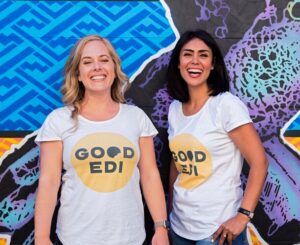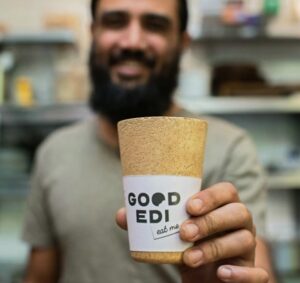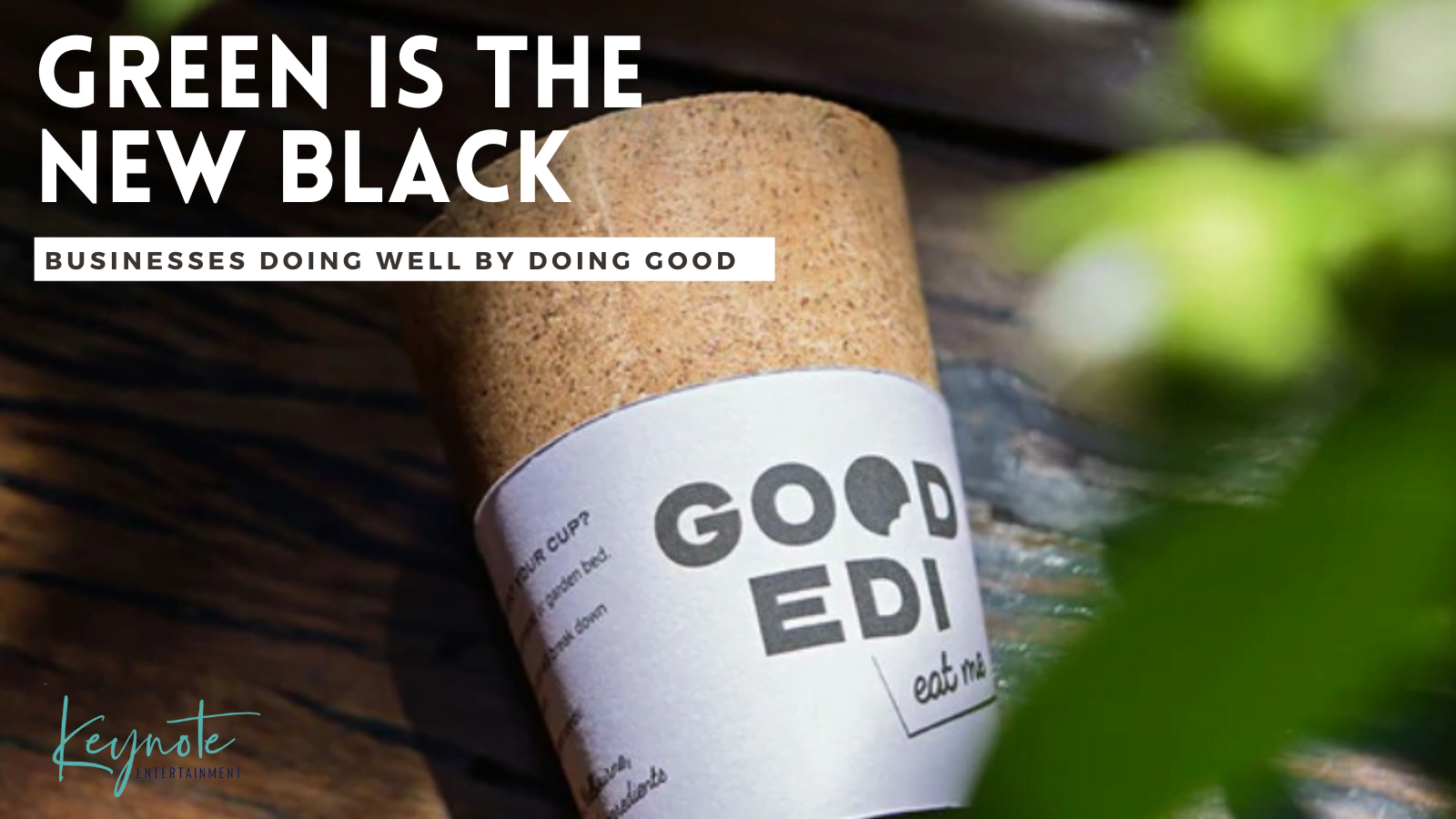“When the wind blows there are those that build walls and then there are those that build windmills.” – Chinese proverb
Gone are the days when the quest for profit comes at the expense of people and the planet. Corporate social responsibility (CSR) and sustainability aren’t just nice-to-haves on the annual report anymore – these days doing well by doing good is where it’s at, and if you’re not actively looking to implement positive impact initiatives, you’ll be held accountable. We take a look at the new era of good corporate citizenship, and some clever initiatives bettering more than just the bottom line.
Global movements like the UN Sustainable Development Goals, the UN Global Compact and B Corp certifications are helping to drive commitment to CSR, while high-profile activists like Greta Thunberg are fuelling the green crusade and ‘eco-anxiety’ amongst consumers. The result? More and more people are actively choosing sustainable and ethical brands.
Recent research by IBM showed that sustainability is important to nearly 80 per cent of the general population – not only that, but of those people, 70 per cent would pay a premium of 35 per cent for brands that are sustainable and environmentally responsible.
While sustainability and ethical practices are important to most people, it’s Millennials – the largest adult cohort in the world – that are the most vocal and dedicated. It seems that if you want their business, and you want their help to run your business, you need to show a genuine commitment to the greater good.
The Millennial quest for good goes beyond simply buying on beliefs, with research by US-based Cone Communications showing that two-thirds of millennials won’t even take a job at a company with poor CSR practices – in fact, the survey of 1000 people found that 75 per cent of millennials would take a pay cut to work for a responsible company, with 83 per cent saying they’d be more loyal to a business that enables them to contribute to solving social and environmental problems.
While there’s been a marked rise in big brands like Patagonia, Intrepid Travel and Ben & Jerry’s achieving BCorp status, eco-minded Australian Millennials are setting up ethical social enterprises that operate like a business – but with a purpose. You’ve heard of KeepCup and Thankyou – they’ve received plenty of press coverage and strong consumer support for their purpose-driven products. Other businesses you may not have heard of, like The Sweetest Gift that employs & trains organ transplant recipients, and HoMie – an award-winning shop selling ethical merchandise and providing clothing and training to homeless young people – are also doing incredible good.
 Another local brand out to prove that small business can make a big difference is local Melbourne start-up Good Edi. Born out of a shared passion for sustainability, big ideas and really good coffee, Good Edi was created by Melbourne duo Catherine Hutchins and Aniyo Rahebi.
Another local brand out to prove that small business can make a big difference is local Melbourne start-up Good Edi. Born out of a shared passion for sustainability, big ideas and really good coffee, Good Edi was created by Melbourne duo Catherine Hutchins and Aniyo Rahebi.
With more than 20 years experience in food processing and packaging, it just didn’t sit right with Catherine and Aniyo that their cherished daily habit added 2.7 million disposable coffee cups to Australian landfill every single day. So they set out to fix the problem, creating the world’s first totally waste-free coffee cup that’s good for the planet, and good for you. Made from ethically sourced, grain-based vegan ingredients, the Good Edi cup can be eaten (it tastes like a waffle cone!) or thrown into the compost or general rubbish where it will break down naturally in a few weeks.
 Winning first place in the 2020 HATCH: Taronga Accelerator Program, a new initiative designed to support sustainability start-ups, allowed Good Edi to kick off production in June 2021. Around 10,000 Good Edi cups have been distributed since then, with coffee roasteries and café owners praising this unique and tasty solution to minimising waste.
Winning first place in the 2020 HATCH: Taronga Accelerator Program, a new initiative designed to support sustainability start-ups, allowed Good Edi to kick off production in June 2021. Around 10,000 Good Edi cups have been distributed since then, with coffee roasteries and café owners praising this unique and tasty solution to minimising waste.
With socially conscious consumers prepared to pay a premium for products produced and discarded responsibly, and investors looking to invest in business that have good ESG (Environment, Sustainability and Governance) metrics, there’s hope that clever initiatives like the Good Edi cup will continue to garner support.
As for big business? The message is hitting home, with KPMG’s 2021 CEO Outlook reporting that 98 per cent of Australian leaders identify corporate purpose as driving their financial performance, while 86 per cent recognise purpose as a key part of their ‘employee value proposition’.
While the pressure to create economic value in ways that also create value for society may be driven by global movements and conscious consumers, it’s win-win all round. Happily, it seems that doing well and doing good are not mutually exclusive – being socially responsible, it turns out, is actually better business.
_____________________
Strike while the iron’s hot! Corporate social responsibility is a trending topic in the wake of the pandemic, and the right motivational speaker can help inspire your team to make a positive difference. We can introduce you to some brilliant business leaders in this space, including Catherine Hutchins and Aniyo Rahebi, founders of Good Edi, Abigail Forsyth, Co-founder and CEO of KeepCup and Justine Flynn, Co-founder of Thankyou. If you’d like to engage any of these sustainability trailblazers to speak to your team about their vision, the challenges they’ve faced and the lessons they’ve learnt, get in touch with us for a chat.

